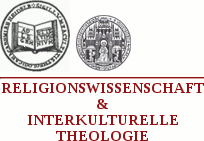Call of Papers (Tamil Studies Network)
full version
Dear Colleagues,
Greetings! My name is Rupa Viswanath, and I
teach Indian Religions at the Center for Modern Indian Studies (CeMIS)
in Goettingen. I write today to announce that my colleagues Michael
Bergunder, Torsten Tschacher, Gabi Alex, and I would like to invite you,
your PhD students and any other PhD students you may know in Germany,
to participate in a small Tamil studies workshop at CeMIS to be held on
June 7th and 8th 2013.
A concept note for the workshop is appended below, so let me first
explain the larger rationale for holding it. Our intention was to
create a solid Tamil Studies Network in Germany to share ideas and
expertise, and to hold such a workshop once a year. If this takes hold,
we hope, in the near future, to expand the network to our colleagues
elsewhere in Europe, and ultimately to expand the annual workshop into a
large annual European Tamil Studies conference. Whether this happens,
of course, depends on your involvement and support.
We will be able to offer travel and accommodation for most
presenters, depending on numbers. And we also urge you to attend even
if you are not presenting a paper, simply to discuss ideas for further
workshops and/or activities of the network, as well as to meet your
colleagues. We hope the first workshop’s theme will bring together the
wide range of disciplines and interests we represent, with enough
overlap to ensure meaningful conversation for all of us. Please do RSVP
as soon as possible, but no later than March 15, 2013 to Ulrike
Schroeder <ulrike.schroeder@wts.uni-heidelberg.de>, and if you intend to present a paper, please also send an abstract to me at <rviswan@gwdg.de>
by April 1, 2013. We will make final decisions and inform presenters
by April 21, 2013. Papers will be due for pre-circulation among
participants on May 15, 2013.
We very much look forward to your presence and participation!
Ungal,
Rupa Viswanath
Rituals of Community and Political Ritual: The Making and Remaking of a Tamil People
Tamils have a remarkably long history of imagining themselves as a
distinctive “community” with culturally and socially unique traits. From
the clear counterposition of cultured Tamil against its dialectal
variants as well as against Sanskrit that one finds in the earliest
Tamil grammar Tolkappiyam (c. 8th century CE), to the heated linguistic
policy debates of the 20th century and the rise of Dravidian
nationalism, Tamils across the centuries have, in distinctive and
historically specific ways, produced ideas of what being a (proper)
Tamil person means and what an (ideal) Tamil society should look like.
For the first meeting of the network, we hope to examine some of the
practices and strategies used to create Tamil subjects, to make what in
modern democratic jargon is called “a people.” What forms of moral,
ethical and pedagogical work have been carried out to produce a Tamil
people? What routines and rituals—religious, political, domestic,
bodily, and so on—have been introduced to faciltiate or in other ways
accompany these processes? What different forms have practices of
people-making taken in different sub-regional milieux and under
different political-religious regimes? We invite papers from
historians, anthropologists, political scientists, Indologists, scholars
of religion and others whose empirical research pertains to these broad
thematic concerns. Topics that might be addressed include, but are
not limited too:
Rituals and sovereignty
Violence and community
Gender regimes and Tamilness
Populism as politics in the postcolonial Tamil world
Religion and/as Tamilness
Elite and subaltern Tamils
Conceptions of caste and castelessness in Tamil society
“Othering” in Tamil social worlds
--
Dr. Rupa Viswanath
Professor of Indian Religions
Centre for Modern Indian Studies
University of Gottingen
Waldweg 26
37073 Gottingen
Germany

